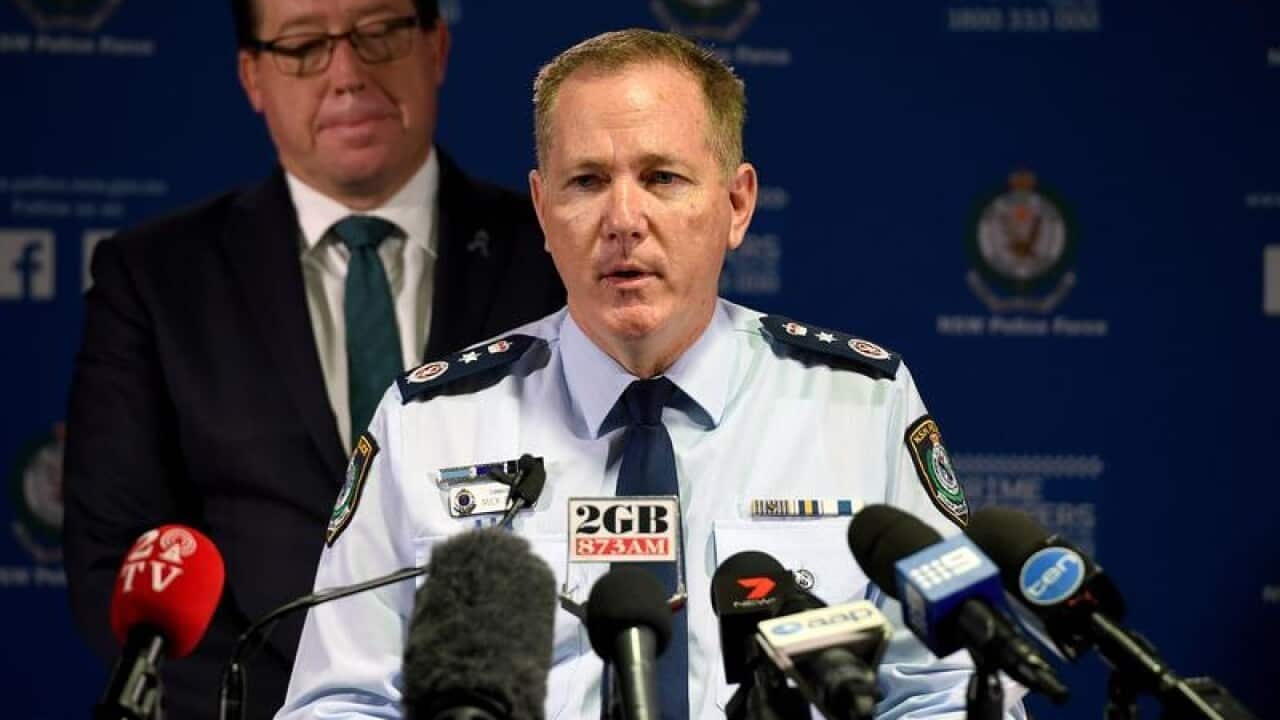The NSW Police Force Commissioner has strongly rebuffed , saying researchers need to "go back and do more homework".
A University of NSW report last week found the number of field strip searches in the state jumped to 5,483 in 2017/18, compared with 277 between December 2005 and November 2006.
Strip searches in custody also rose, the study said.
Under questioning from Greens MLC David Shoebridge, Commissioner Mick Fuller on Thursday told a NSW budget estimates hearing the university had muddled its numbers and failed to understand their context.
He said there were at least 800 strip searches in the 2005-2006 period cited in the study, rather than 277, and attributed the increase overtime to "codification changes" under the Law Enforcement (Powers and Responsibilities) Act.
"The Redfern Legal Centre, UNSW, [they're] incorrect and I'd expect a little more from someone funded by state and federal governments," Mr Fuller said.
"Around that time, LEPRA codified what a search was. Police training increased dramatically, supervision and recording standards improved.
"It's very difficult when the law changes to use that on its own to look at an increase ... It's not a police power being overused."
The report also found the "degrading and humiliating" searches aren't legally justified if an officer merely suspects someone has drugs, but this was the reason given for more than 90 per cent of searches in 2018/19.
Officers can only conduct a strip search in the field if they suspect it's necessary and the seriousness and urgency of the circumstances make it necessary.
In a fractious exchange with Mr Shoebridge, Mr Fuller said any individual who felt wronged by police should come forward with a public complaint.
But he labelled as "reprehensible", complaints made at the music festival deaths inquest in the Coroner's Court, that an officer allegedly warned a publicly unidentified patron she'd make her strip search "nice and slow".
"By a lady who turns up, the counsel assisting police were given no warning, turns up, no name, no address, nothing to us? A secret witness. Why did they keep that person secret?" Mr Fuller said to Mr Shoebridge.
"I think it's poor practise if this is going to be the way forward in coronials, that mystery witnesses turn up and sit behind a veil of anonymity and they're not held to account. It's a disgrace in a democracy."
The 28-year-old woman, in fact, did not give evidence anonymously at the inquiry in July, but could not be publicly identified for legal reasons.
The quarrel prompted NSW Police Minister David Elliott to threaten to take all questions relating to uncited evidence or statistics on notice.
The report found in 64 per cent of strip searches, nothing incriminating was found, and only 30 per cent of searches prompted criminal charges in 2017/18.




